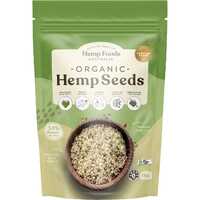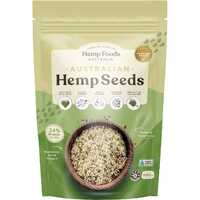As human beings living on planet Earth, our bodies develop a range of natural responses to help us survive and thrive in what can be a tough environment. Inflammation is one such response. This low-level defence mechanism occurs throughout the body as a form of self-protection. From injuries and parasites to toxins and infections, inflammation is an attempt at self-healing triggered by cell damage and immune system activation. However, despite the biological self-preservation of this mechanism, inflammation can easily get out of control and often does more harm than good.
What is the inflammatory response?
When the body is damaged from foreign or harmful substances, various chemicals are released and the immune system is triggered. Our biological system responds to substances called antigens, which are usually proteins and typically exist on the surface of damaged cells or unwanted fungi, viruses, and bacteria. The immune system is then activated, with a variety of protective mechanisms applied to safeguard surrounding tissue prior to the initiation of localised healing processes.
In many ways, the inflammatory response is our bluntest yet most powerful protection against environmental harm. Rather than a tailored response to a particular physical problem, inflammation is an automated biological response to any kind of cell damage. Specific chemicals are released from the damaged cells, including histamine, bradykinin, and prostaglandins. These chemicals cause blood vessels to leak fluid into the affected and surrounding tissues, and they attract white blood cells to clean up the mess. The whole process functions as a biological mitigation strategy and typically results in redness, swelling, heat, and pain.
Acute vs chronic inflammation
Inflammation is undeniably necessary, but it can also get out of control and create additional problems. In order to understand the difference between good and bad inflammation, it's important to define acute and chronic inflammation. Acute inflammation is fundamental to healing. It is an early response involved in the identification of foreign invaders, elimination of short-term threats, and protection of important biological processes prior to healing. Acute inflammation starts quickly, moves fast, and remains localised.
Chronic inflammation is another story altogether. While it often develops as a failed acute response, it persists for longer than necessary and can cause a range of painful long-term conditions. Chronic inflammation may start quickly, but it moves slowly and can spread beyond the boundaries of the original problem. In order to guard yourself against chronic inflammation, it's important to recognise the warning signs, understand the causes, and make changes to your diet and lifestyle.
The reasons for chronic inflammation
There is no single cause of long-term inflammation, which can occur almost anywhere in the body and persist for almost any length of time. A wide range of diseases has been associated with chronic inflammation. And, in some sense, inflammation is a basic underlying cause of almost every disease. From cancer and heart disease to digestive and autoimmune disorders, persistent inflammation at the cellular level is a primary cause of both premature cell death and unwanted cancer cell growth.
Inflammatory pathways impact the pathogenesis of many chronic diseases, often through inflammatory mediators or regulatory pathways. Specific markers are often used to indicate the difference between normal and pathogenic biological processes, with inflammatory markers often highly predictive of inflammatory diseases. While it might sound simple to associate almost all chronic diseases with inflammation, as a low-level biological response, it is prevalent in a huge array of pathogenic processes.
Chronic inflammation occurs for the following reasons:
- Failed or prolonged acute inflammatory responses
- Allergies or hypersensitivity
- Genetic autoinflammatory diseases
- Autoimmune disorders
- Long-term exposure to toxins or environmental stresses
How to avoid chronic inflammation
You can help to manage inflammation by paying attention to your diet, exercise regime, and overall lifestyle. While many diseases are down to your genes or simply due to bad luck, there's a lot you can do to improve your physiology. A healthy diet helps to reduce the risk of many chronic diseases, as well as enhance mood and improve quality of life. Exercise and lifestyle factors also play a key role in how the body functions on a cellular level.
Diet
Inflammation underlies the development of numerous chronic diseases. Many of the foods associated with an increased risk of chronic disease are also associated with long-term inflammation. In order to reduce the chances of developing chronic inflammation, it's important to eat a healthy diet and actively avoid foods associated with inflammation markers. Your immune system springs into action when it recognises anything foreign. As such, eat natural, fresh ingredients and try to avoid exposure to plant pesticides and animal antibiotics.
A number of foods are known to help with chronic inflammation. Anything rich in natural antioxidants or healthy omega-3 fatty acids is likely to be beneficial, including salmon, tuna, almonds, walnuts, and cruciferous vegetables. The traditional Mediterranean diet may help to fight inflammation. This diet is high in fruits, vegetables, fish, whole grains, and olive oil. Nuts have also been linked with reduced inflammation markers, and coffee can be helpful in moderation due to its high polyphenol content. Certain herbs, spices, and supplements may also help to reduce inflammation, including curcumin, garlic, ginger, and cayenne.
Along with eating the right foods, it's important to avoid or limit your consumption of highly processed, overly sweet, or otherwise unhealthy foods. Certain foods have a known link to conditions like heart disease and diabetes. Others are known to contribute to weight gain, which is a significant risk factor for inflammation. Refined carbohydrates and excessive sugar are generally a bad idea, as are processed meats, margarine, and excessive red meat consumption. While variety is the spice of life and moderation is good with most things, many of these foods can be eliminated or greatly reduced.
Exercise and lifestyle
Along with making positive dietary changes, regular physical exercise can be a great way to avoid or fight chronic inflammation. While some fitness regimes can cause acute inflammation due to injuries and ongoing physical stress, overall, exercise is a great way to improve physical function and decrease systematic inflammation. While it's impossible to reverse the ageing process, exercise can help to reduce the significant decline in immune function associated with ageing due to chronic inflammation.
Ongoing exercise can help to reduce insulin resistance, which is a known marker of increased lifespan outcomes. Not all exercise is the same, however, with high interval training likely to create the most beneficial outcomes. When combined with a healthy diet, exercise can help to build strength, burn fat, and inhibit the development of chronic inflammation and disease. A number of studies strongly suggest a robust inverse relationship between physical activity levels and inflammation biomarkers.
Lifestyle factors also play an important role in helping to reduce chronic systematic inflammation. For example, mindfulness and meditation strategies can be an effective way to reduce stress levels, especially when combined with healthy nutrition and regular exercise. According to research, mind-body interventions may help to reduce the risk of inflammation-related disorders, including mental health conditions like depression and anxiety and physical diseases such as asthma and arthritis. Lifestyle factors that may influence inflammation include stress, sleep, smoking, hormones, and obesity.
Acute inflammation is a necessary and important part of life. This blunt but powerful physiological response provides protection and healing when we need it most. Chronic inflammation is another story, and it has been linked with a wide range of diseases throughout the human body. In order to manage acute inflammation when it occurs and prevent chronic conditions from developing, it's important to eat healthy, exercise on a regular basis, and avoid long-term exposure to toxins and environmental stresses.


 Certified Organic
Certified Organic Vegan Friendly
Vegan Friendly  Vegetarian
Vegetarian Organic Ingredients
Organic Ingredients Dairy Free
Dairy Free Gluten Free
Gluten Free Keto Friendly
Keto Friendly

































